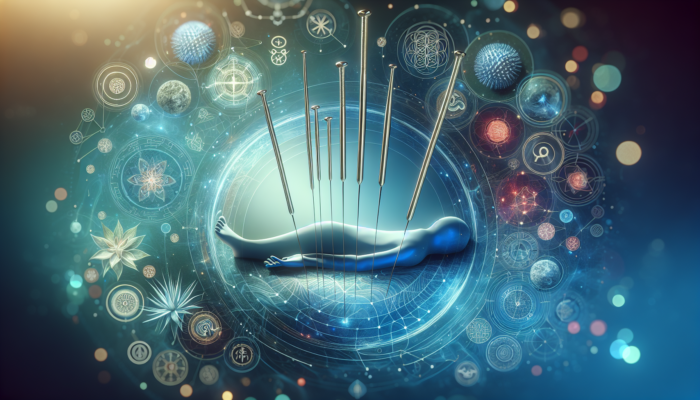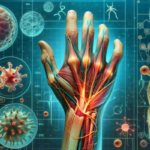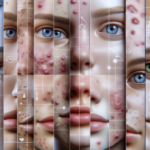Unlocking the Potential of Acupuncture for Fertility Enhancement
Understanding Acupuncture: Techniques and Benefits for Fertility

Acupuncture is a revered practice rooted in traditional Chinese medicine that involves the precise insertion of ultra-fine needles at specific points throughout the body. This ancient methodology is designed to stimulate and harmonise the Qi (pronounced “chee”), or vital energy flow, promoting both physical and emotional well-being. Increasingly, acupuncture is recognised for its profound impact on fertility support, as it enhances reproductive health and fosters a sense of overall wellness, making it an appealing option for individuals and couples trying to conceive.
The needles used in acupuncture are remarkably thin, ensuring that the insertion process is minimally uncomfortable. By concentrating on specific acupuncture points, practitioners can effectively modulate various physiological functions, thereby facilitating healing and re-establishing balance within the body. This becomes particularly significant for those pursuing fertility assistance, as acupuncture enhances blood flow to the reproductive organs, regulates hormonal levels, and alleviates stress—critical elements for successful conception.
In our fast-paced, modern environment, everyday pressures can detrimentally affect reproductive health. Acupuncture serves as a holistic remedy to counteract these adverse impacts, making it an increasingly popular choice for individuals or couples seeking to conceive. An array of studies suggests that consistent acupuncture treatments can lead to improved reproductive function, thereby reinforcing its importance in fertility therapies.
A Rich Historical Perspective on Acupuncture
The practice of acupuncture boasts a rich history that spans more than 2,500 years and originates from ancient China. Initially documented in foundational texts like the Huangdi Neijing (The Yellow Emperor's Classic of Internal Medicine), acupuncture has undergone significant evolution through centuries of practice and refinement. Initially, this traditional healing technique was aimed at achieving harmony within individuals and their surrounding natural environment, both spiritually and physically.
As acupuncture transcended the borders of China, its core principles and methodologies were embraced by diverse cultures around the world, leading to its widespread acceptance and integration. In the Western world, acupuncture began to gain traction in the 20th century, particularly as rigorous research was conducted to assess its effectiveness. Today, it is recognised as a complementary therapy that harmonises with conventional medical treatments, especially in areas such as acupuncture for fertility support, where its benefits are increasingly acknowledged and celebrated.
The historical development of acupuncture reflects a broader shift towards integrative medicine, where patients actively seek holistic therapies that work in tandem with conventional treatments. This historical context underscores the enduring relevance of acupuncture and its capacity to address modern health challenges, particularly those related to reproductive health.
Diving Deep into the Mechanisms of Acupuncture's Effectiveness
Acupuncture operates on the core principle of activating the body's intrinsic healing mechanisms. By targeting specific acupuncture points, practitioners can influence the nervous system, muscles, and connective tissues, leading to enhanced blood circulation—vital for nourishing the organs involved in reproduction. Improved circulation has the potential to enhance egg quality and create a more welcoming uterine lining, both essential for successful conception.
Moreover, acupuncture stimulates the release of endogenous endorphins, the body’s natural pain-relieving substances, which alleviates discomfort and promotes relaxation. This stress-relieving effect is particularly valuable for individuals grappling with the emotional pressures often linked to fertility struggles. Lowering stress is crucial, as heightened cortisol levels can disrupt reproductive hormones, complicating the journey to conception.
Research indicates that acupuncture can restore hormonal equilibrium by modulating the levels of essential reproductive hormones such as follicle-stimulating hormone (FSH) and luteinising hormone (LH). By normalising these hormonal levels, acupuncture can enhance ovulation and increase fertility potential. This comprehensive understanding of acupuncture's mechanisms underscores its value as a supportive therapy in reproductive health.
Exploring the Multifaceted Advantages of Acupuncture

Engaging in acupuncture presents a plethora of benefits, particularly for individuals focused on enhancing their fertility. One of the most prominent advantages lies in its effectiveness at alleviating stress. Stress is a well-documented barrier to fertility; however, acupuncture promotes relaxation and emotional stability, creating an environment conducive to conception. Regular sessions can lower cortisol levels and enhance hormonal balance, which in turn improves overall reproductive health.
Furthermore, acupuncture is well-known for its capacity to enhance sleep quality, a crucial factor in maintaining hormonal equilibrium and overall health, which is particularly important during the fertility journey. By addressing issues related to insomnia or disrupted sleep patterns, acupuncture indirectly supports reproductive function, further emphasising its significance in acupuncture for fertility support.
Additionally, acupuncture has proven effective in alleviating various physical ailments, such as chronic pain and digestive disorders, which can also impact fertility. By addressing these underlying conditions, acupuncture optimally prepares the body for conception. This holistic approach positions acupuncture not only as a therapeutic intervention for fertility but also as a comprehensive strategy for enhancing overall well-being.
Adapting Acupuncture Techniques to Meet Individual Needs
The practice of acupuncture encompasses a variety of techniques tailored to accommodate individual health requirements. The most prevalent method involves manual needle manipulation, where the acupuncturist inserts needles into designated points and may gently stimulate them as needed. This traditional approach effectively promotes relaxation and enhances energy flow throughout the body.
Another innovative technique is electroacupuncture, which involves the application of a mild electrical current to the needles, further stimulating the acupuncture points. This method can significantly augment the overall effectiveness of treatment, particularly in fertility support scenarios. The electrical stimulation intensifies the body's response, resulting in improved blood flow and better hormonal regulation.
Cupping therapy, often used in conjunction with acupuncture, creates suction on the skin to enhance blood flow and relieve muscle tension. This technique can be particularly beneficial for individuals experiencing tightness or discomfort, further supporting the relaxation necessary for optimal fertility.
Each acupuncture technique offers unique benefits, and a qualified practitioner can customise the approach based on individual health needs and fertility objectives. This adaptability exemplifies acupuncture's versatility in addressing a wide array of health concerns while concentrating on enhancing reproductive health.
Understanding Acupuncture's Influence on Fertility
Boosting Fertility through Targeted Acupuncture Techniques
An expanding body of evidence suggests that acupuncture can significantly enhance reproductive health, strengthening the connection between acupuncture and fertility. A primary mechanism through which acupuncture supports fertility is by alleviating stress. High stress levels are known to disrupt hormonal balance and can interfere with both ovulation and sperm production, presenting additional challenges for couples hoping to conceive. By facilitating relaxation and reducing cortisol levels, acupuncture creates a more favourable environment for conception.
Another vital aspect of acupuncture’s role in boosting fertility is its ability to enhance blood circulation to the reproductive organs. Improved blood flow ensures that the ovaries and uterus receive essential nutrients and oxygen, thereby improving egg quality and preparing the uterine lining for successful implantation. This enhanced circulation is especially critical during the menstrual cycle, particularly during ovulation and implantation.
Moreover, acupuncture aids in regulating hormonal levels by influencing the endocrine system. By balancing hormones such as oestrogen and progesterone, acupuncture supports regular ovulation cycles, which are essential for conception. This hormonal balance becomes particularly significant for individuals with conditions like polycystic ovary syndrome (PCOS), where hormonal imbalances can impede fertility.
Finally, acupuncture promotes the overall health of both partners by improving metabolic function and fostering general well-being. This holistic approach addresses not only the physical aspects of fertility but also encompasses emotional and mental health, creating a comprehensive strategy for couples on their journey to parenthood.
Research Findings: Scientific Validation of Acupuncture and Fertility
A multitude of studies have explored the relationship between acupuncture and fertility, revealing promising findings that support its role in reproductive health. Research indicates that acupuncture can improve the success rates of in vitro fertilisation (IVF) treatments. A systematic review published in respected medical journals highlighted that patients who underwent acupuncture alongside IVF experienced higher rates of pregnancy and live births compared to those who did not receive acupuncture.
One significant study demonstrated that acupuncture markedly increased uterine blood flow, which is critical for embryo implantation. Enhanced blood flow fosters a more welcoming uterine environment, thereby increasing the likelihood of successful implantation. This finding is particularly compelling for couples undergoing assisted reproductive technologies, as it illustrates the potential benefits of integrating acupuncture into standard treatment protocols.
Further research has also shown that acupuncture can assist in regulating menstrual cycles and ovulation, underscoring its role in supporting fertility. Studies have indicated that women with irregular cycles experienced improved regularity following a series of acupuncture treatments, leading to enhanced fertility potential.
While additional research is necessary to fully elucidate the underlying mechanisms, the existing studies provide a robust foundation for considering acupuncture as a valuable adjunct therapy for individuals and couples seeking to improve their fertility outcomes. The synergy between acupuncture and conventional treatments can offer a more comprehensive approach to addressing fertility challenges.
Personal Testimonials: Real-Life Experiences with Acupuncture
Many individuals and couples have shared their positive experiences with acupuncture in relation to fertility, highlighting its potential effectiveness. Personal testimonials frequently emphasise the reduction of stress and anxiety associated with the journey to conception. Numerous individuals report feeling more relaxed and centred following acupuncture sessions, which can significantly impact their emotional well-being.
One couple recounted their struggle with infertility over several years, feeling overwhelmed by the emotional burden. After integrating acupuncture into their routine, they noticed a substantial shift in their mindset. They reported feeling more hopeful and balanced, which translated into a more positive outlook regarding their fertility treatments. This emotional transformation often plays a crucial role in the overall success of conception attempts.
Additionally, numerous success stories involve individuals who underwent acupuncture in conjunction with IVF treatments, reporting higher success rates. Many shared that acupuncture aided them physically and provided emotional support during a challenging period. The combination of physical and mental benefits positions acupuncture as a holistic remedy for those facing fertility challenges.
These personal accounts serve as a powerful reminder of the potential advantages of acupuncture for fertility support, illustrating how this ancient practice can positively influence the journey toward parenthood. As awareness of these success stories increases, more individuals are turning to acupuncture as a complementary approach in their pursuit of conception.
Preparing for Your Acupuncture Experience: Essential Considerations
Choosing the Right Acupuncturist for Effective Fertility Support
Selecting the right acupuncturist is crucial for maximising the benefits of acupuncture, particularly for those seeking fertility support. It is essential to find a licensed acupuncturist with specialised experience in addressing fertility-related issues. Credentials such as a Master’s degree in acupuncture or traditional Chinese medicine can provide reassurance regarding the practitioner’s qualifications and expertise.
Investigating patient reviews and testimonials can offer valuable insights into an acupuncturist’s effectiveness and approach. Look for practitioners who specialise in reproductive health, as they will be more familiar with how acupuncture can aid fertility. Additionally, acupuncturists who integrate holistic practices will provide a more comprehensive approach tailored to individual health requirements.
Furthermore, consider scheduling an initial consultation to discuss your fertility goals and any relevant medical history. This meeting can help establish rapport and ensure you feel comfortable with the practitioner’s methods. It is vital to find someone who listens attentively and addresses your specific concerns, as the therapeutic relationship can significantly influence the effectiveness of the treatments.
In summary, selecting a qualified acupuncturist with expertise in fertility will enhance your acupuncture experience and increase your chances of achieving your reproductive health aspirations.
What to Expect During an Acupuncture Session: A Comprehensive Overview
During an acupuncture session, you can anticipate a calming and supportive atmosphere designed to facilitate relaxation. Most sessions begin with a consultation, during which the acupuncturist evaluates your symptoms and discusses your fertility objectives. Following this initial discussion, you will typically recline on a comfortable treatment table, often in a softly lit room accompanied by soothing music.
The acupuncturist will then insert fine needles into targeted acupuncture points, which may vary based on your individual needs. The insertion of these needles is usually painless, with some individuals reporting a slight sensation as the needle penetrates the skin. Once placed, the needles are retained for approximately 30 to 60 minutes while you lie quietly, allowing your body to fully absorb the treatment.
Many patients find this time profoundly relaxing, and it is common to experience a sense of calm and tranquillity throughout the session. Some practitioners may also employ supplementary techniques, such as moxibustion (the burning of an herb near the acupuncture points) or cupping, to enhance the treatment's effects.
As you relax, the acupuncturist may periodically check in with you to ensure your comfort and to address any questions you may have. Following the session, you will likely feel revitalised and experience a sense of well-being that can last for several days. It is important to remain open to the experience and communicate any discomfort or concerns with your acupuncturist, as they can adjust the treatment accordingly to maximise its benefits.
Preparations for Optimal Acupuncture Results: A Guide
Preparing for your acupuncture session can significantly enhance your overall experience and maximise its benefits for fertility support. One of the simplest yet most effective preparations is to wear loose, comfortable clothing. This allows easy access to the acupuncture points and promotes relaxation throughout the session.
Eating a light meal before your appointment is also advisable. A small snack or meal can help maintain your blood sugar levels, preventing feelings of light-headedness or discomfort during the session. However, it is best to avoid heavy meals, as they may lead to discomfort while lying on the treatment table.
Staying well-hydrated before your session is crucial, as dehydration can affect your overall energy levels and response to the treatment. Drinking water throughout the day leading up to your appointment can help ensure your body is in optimal condition for the acupuncture therapy.
Moreover, consider taking a few moments to relax and clear your mind before the session. Engaging in deep breathing exercises, meditation, or gentle stretching can help you arrive at your appointment calmly and facilitate the receipt of the treatment’s benefits. By following these simple preparations, you'll lay the groundwork for a successful acupuncture session, optimising its effects on your fertility journey.
Understanding the Comprehensive Benefits of Acupuncture
Comprehending the myriad benefits of acupuncture in the context of fertility support is essential for individuals seeking to enhance their reproductive health. A key advantage lies in its capacity to improve blood flow to the reproductive organs. Enhanced circulation plays a vital role in nourishing the ovaries and uterus, improving egg quality and creating a healthier uterine environment for implantation.
Additionally, acupuncture promotes hormonal balance, which is crucial for regulating ovulation and menstrual cycles. By influencing the endocrine system, acupuncture can help normalise hormone levels, supporting the body’s natural reproductive processes. This hormonal regulation is particularly beneficial for individuals dealing with conditions such as polycystic ovary syndrome (PCOS) or irregular cycles, as it assists in restoring reproductive harmony.
Stress reduction is another significant benefit of acupuncture. The emotional and physical toll of fertility challenges can be overwhelming; however, acupuncture provides a therapeutic outlet to alleviate anxiety and promote relaxation. By decreasing cortisol levels and enhancing emotional well-being, acupuncture can create a more conducive environment for conception.
Furthermore, acupuncture can complement other fertility treatments, such as in vitro fertilisation (IVF) or intrauterine insemination (IUI). When used in conjunction with these procedures, acupuncture has been shown to enhance success rates by improving uterine receptivity and overall health.
In essence, the multifaceted benefits of acupuncture for fertility support encompass physical, emotional, and holistic health aspects, making it a valuable addition to any fertility journey.
Essential Post-Session Care for Maximum Benefits
Post-session care is an often overlooked component of acupuncture that can significantly enhance its effects, particularly for individuals seeking fertility support. After your acupuncture session, it is advisable to rest and allow your body to integrate the treatment fully. Engaging in light activities, such as gentle walking or stretching, can promote circulation without overexerting yourself.
Staying hydrated post-treatment is crucial. Drinking ample water can help flush out toxins released during acupuncture and support overall well-being. Hydration is particularly important for those focusing on fertility, as optimal hydration can impact bodily functions and reproductive health.
It is recommended that you avoid strenuous activities or high-stress situations immediately following your session, as this can counteract the relaxation achieved during acupuncture. Instead, indulge in calming activities such as reading, meditating, or enjoying a warm bath to maintain a peaceful mindset.
Monitoring any changes in your symptoms or emotional states following the session is also beneficial. Noting these changes can yield valuable insights to discuss with your acupuncturist during your next visit. By practising proper post-session care, you can maximise the benefits of acupuncture for fertility support, ensuring a holistic approach to your reproductive health journey.
Targeted Acupuncture Techniques for Fertility Enhancement
Key Acupuncture Points for Optimising Fertility
In acupuncture, specific points are targeted to promote fertility and enhance reproductive health. Some of the key acupuncture points utilised in fertility treatments include SP6 (Sanyinjiao), CV4 (Guanyuan), and ST36 (Zusanli). Each of these points plays a crucial role in regulating bodily functions associated with fertility.
SP6, located on the inner leg, is renowned for nourishing the reproductive organs and regulating menstrual cycles. Stimulating this point can enhance ovarian function and promote better hormonal balance, essential for ovulation. Many practitioners regard SP6 as a vital point for women facing fertility challenges, particularly those with irregular cycles.
CV4, situated in the lower abdomen, is another critical point for fertility support. This point is associated with the uterus and is believed to strengthen reproductive function. By stimulating CV4, acupuncturists aim to improve blood flow to the uterus, creating a more receptive environment for implantation and supporting overall reproductive health.
ST36, found on the lower leg, is widely recognised for its holistic health benefits. This point boosts energy levels, improves digestion, and enhances immune function. In the context of fertility, stimulating ST36 can support the body’s overall vitality, making it better equipped to handle the demands of conception.
By targeting these key acupuncture points, practitioners can formulate a personalised treatment plan that addresses specific fertility concerns, optimising the chances of conception and supporting reproductive health.
Determining the Frequency of Acupuncture Sessions for Optimal Results
For individuals and couples seeking fertility support through acupuncture, the frequency of sessions is pivotal in achieving the best possible results. Many acupuncturists recommend weekly or bi-weekly sessions, particularly during the initial stages of treatment. This consistent approach helps to build momentum and reinforce the positive effects of acupuncture on reproductive health.
During these sessions, acupuncturists can closely monitor progress and make necessary adjustments based on individual responses. Some patients may require more frequent sessions, especially if they are undergoing fertility treatments such as IVF or IUI. In such scenarios, acupuncture may be strategically timed around treatment cycles to enhance the likelihood of successful outcomes.
As progress is made, practitioners may adjust the frequency of sessions according to the individual's specific needs and goals. Many patients find that ongoing maintenance sessions every few weeks or month can help sustain the benefits of acupuncture, ensuring continued support for fertility and overall well-being.
Ultimately, the frequency of acupuncture sessions should be tailored to the individual’s unique circumstances and fertility journey. Open communication with your acupuncturist can help establish an effective treatment plan that aligns with your needs and aspirations.
Integrating Acupuncture with Other Fertility Treatments: A Holistic Approach
The integration of acupuncture with other fertility treatments is a compelling strategy endorsed by many practitioners, as it can significantly elevate the success rates of assisted reproductive technologies such as in vitro fertilisation (IVF) and intrauterine insemination (IUI). The complementary nature of acupuncture allows for a holistic approach to fertility that addresses both physical and emotional dimensions.
Research suggests that acupuncture administered before and after embryo transfer during IVF can improve blood flow to the uterus and bolster implantation rates. This supportive role can be crucial for individuals undergoing IVF, as it helps create an optimal environment for embryo development.
Moreover, acupuncture can mitigate the side effects of fertility medications, such as hormonal imbalances or emotional fluctuations. By promoting relaxation and alleviating stress, acupuncture aids in restoring balance to the body, making it more receptive to the hormonal changes induced by fertility treatments.
Practitioners often recommend synchronising acupuncture sessions with specific phases of the fertility treatment cycle. For instance, sessions may be strategically timed to coincide with ovulation or during the luteal phase to maximise effectiveness. This tailored approach ensures that patients receive the support they need throughout their fertility journey.
Incorporating acupuncture alongside conventional treatments not only enhances the likelihood of successful outcomes but also promotes a sense of well-being and empowerment for individuals on their fertility path. This integrative approach underscores the potential of acupuncture as a valuable ally in the quest for conception.
Optimal Timing for Acupuncture Treatments in Relation to Fertility
The timing of acupuncture treatments is essential for maximising their efficacy in supporting fertility. Acupuncturists often align treatment sessions with an individual’s menstrual cycle or fertility treatment schedules to create an optimal environment for conception. By strategically timing sessions, practitioners can enhance the synchronisation of acupuncture's benefits with the body’s natural rhythms and reproductive processes.
For women undergoing fertility treatments such as IVF or IUI, acupuncture is frequently incorporated into pre-treatment and post-treatment protocols. For example, sessions before embryo transfer can improve blood flow to the uterus, creating a more receptive environment for embryo implantation. After transfer, acupuncture may help alleviate stress and support relaxation, further enhancing the chances of success.
Additionally, for those managing irregular menstrual cycles, acupuncture can be timed to coincide with key phases of the cycle. Treatments may be scheduled to promote ovulation, improve the quality of the uterine lining, and regulate hormonal fluctuations. By targeting specific points during critical times, acupuncture can optimise the body’s natural processes, supporting efforts to conceive.
In essence, the timing of acupuncture treatments is vital in enhancing their effectiveness for fertility support. Collaborating with a knowledgeable acupuncturist ensures that treatments are delivered at the most advantageous times, maximising potential benefits and supporting overall reproductive health.
Holistic Lifestyle and Nutritional Guidance for Enhanced Fertility
Acupuncturists often provide lifestyle and dietary recommendations to complement acupuncture treatments and enhance fertility outcomes. Embracing a holistic approach to health is vital for individuals seeking to conceive, as nutrition and lifestyle choices can significantly affect reproductive health.
Nutrition forms the foundation of fertility. Acupuncturists may advocate for a balanced diet rich in whole foods, including ample fruits, vegetables, lean proteins, and healthy fats. Foods high in antioxidants, such as berries and leafy greens, can combat oxidative stress, which adversely impacts reproductive health. Furthermore, incorporating omega-3 fatty acids, found in fish or flaxseeds, can promote hormonal balance and bolster overall well-being.
Lifestyle factors, including stress management and regular physical activity, are equally crucial. Engaging in moderate exercise can enhance circulation and decrease stress levels, both of which are critical for reproductive health. Activities such as yoga or swimming can contribute to relaxation while keeping the body active.
Moreover, acupuncturists may recommend limiting excessive caffeine and alcohol consumption, as these substances can negatively impact fertility. Adequate hydration and quality sleep are also essential, as both factors contribute to overall health and hormonal regulation.
By integrating these lifestyle and dietary recommendations with acupuncture treatments, individuals can formulate a comprehensive strategy for enhancing fertility. This holistic approach addresses multiple aspects of health, empowering individuals in their journey towards conception.
Specific Benefits of Acupuncture for Fertility Enhancement
Minimising Stress for Improved Fertility Outcomes
Stress is a significant barrier to fertility, as it can adversely affect hormonal balance and reproductive function. Acupuncture offers an effective means of alleviating stress, promoting relaxation and emotional well-being. By stimulating the release of endogenous endorphins, acupuncture helps to alleviate feelings of anxiety and tension, fostering a more supportive environment for conception.
Research has demonstrated that acupuncture can lower cortisol levels, the hormone associated with stress. Elevated cortisol can disrupt the reproductive hormones necessary for ovulation and sperm production, making stress management essential for individuals attempting to conceive. Regular acupuncture sessions can foster a sense of calm, enabling individuals to navigate the emotional challenges of fertility with greater resilience.
Moreover, the tranquil environment of an acupuncture session enhances the overall relaxation experience. Many patients report feeling profoundly relaxed during and after treatments, which can extend into their daily lives, further promoting emotional stability and reducing anxiety surrounding fertility challenges.
By addressing stress through acupuncture, individuals can create a more conducive atmosphere for conception, thereby supporting their journey towards parenthood. The stress-reducing benefits of acupuncture are particularly vital in an era where modern life's demands can adversely impact reproductive health.
Enhancing Blood Circulation for Optimal Reproductive Health
One of the key advantages of acupuncture is its ability to enhance blood circulation to the reproductive organs, significantly influencing fertility. Improved blood flow ensures that the ovaries and uterus receive an adequate supply of oxygen and nutrients, both vital for optimal reproductive function. This increased circulation can elevate egg quality and prepare the uterine lining for successful implantation.
Acupuncture improves circulation by stimulating specific acupuncture points, promoting vasodilation and enhancing blood flow to the targeted areas. Enhanced blood circulation is especially beneficial for individuals undergoing assisted reproductive technologies (ART), such as in vitro fertilisation (IVF), where a healthy uterine environment is critical for embryo implantation.
Furthermore, improved circulation can alleviate pelvic congestion, which may hinder fertility. By enhancing blood flow, acupuncture alleviates discomfort and improves overall reproductive health, making it a valuable adjunct therapy for those facing fertility challenges.
The relationship between blood flow and fertility underscores the importance of acupuncture in supporting reproductive health. By enhancing circulation, acupuncture addresses the physiological aspects of fertility and contributes to a more holistic approach to achieving conception.
Facilitating Hormonal Balance for Improved Fertility
Hormonal balance is fundamental to reproductive health, and acupuncture plays a crucial role in regulating hormones vital for fertility. Research has shown that acupuncture can influence key hormones such as follicle-stimulating hormone (FSH), luteinising hormone (LH), and oestrogen, all essential for successful ovulation and conception.
By stimulating specific acupuncture points, practitioners can enhance the body’s endocrine function, thereby improving hormonal regulation. This balance is particularly important for individuals with conditions such as polycystic ovary syndrome (PCOS), where hormonal imbalances can obstruct fertility. Acupuncture can help regulate the menstrual cycle and promote ovulation, enhancing the chances of conception.
Moreover, achieving hormonal balance through acupuncture can alleviate symptoms associated with hormonal fluctuations, such as mood swings, irregular cycles, and physical discomfort. This holistic approach to managing hormonal health empowers individuals to take control of their reproductive well-being.
The connection between hormonal balance and fertility highlights the vital role that acupuncture can play in supporting reproductive health. By promoting hormonal harmony, acupuncture enhances the body’s natural ability to conceive, making it a valuable tool for those seeking to expand their families.
Boosting Ovulation Rates with Targeted Acupuncture Techniques
Acupuncture has been shown to positively affect ovulation rates, making it an invaluable resource for individuals striving to conceive. By enhancing hormonal regulation and blood flow to the reproductive organs, acupuncture can stimulate the release of gonadotropins—hormones essential for ovulation. This stimulation is critical for individuals experiencing irregular or absent cycles, as it can help trigger the body’s natural ovulatory processes.
Research indicates that acupuncture can increase the frequency of ovulation in women with conditions such as polycystic ovary syndrome (PCOS). Numerous studies have reported improved ovulation rates following a series of acupuncture sessions, offering hope for those encountering challenges along their fertility journey.
In addition to stimulating ovulation, acupuncture can enhance the quality of the eggs released during ovulation. Higher-quality eggs are more likely to lead to successful fertilisation and viable pregnancies. By focusing on both quantity and quality, acupuncture enhances the overall success rates of conception efforts.
Furthermore, acupuncture’s role in regulating the menstrual cycle contributes to a more predictable ovulatory pattern, enabling individuals to time intercourse or assisted reproductive treatments more effectively. This increased predictability is essential for maximising fertility efforts, as it aligns reproductive activities with the body’s natural rhythms.
Overall, the capacity of acupuncture to increase ovulation rates represents a significant benefit for individuals seeking to conceive. This supportive approach enhances the body’s natural reproductive functions, making acupuncture a powerful ally in fertility.
Enhancing Male Fertility through Acupuncture Interventions
The advantages of acupuncture extend beyond female fertility. Research suggests that acupuncture can also improve male reproductive health, particularly sperm quality. Key parameters such as sperm motility, morphology, and overall count are critical factors in male fertility, and acupuncture has been shown to enhance these aspects significantly.
Studies indicate that acupuncture can increase sperm motility, essential for successful fertilisation. Improved motility ensures that sperm can effectively swim towards the egg, thereby increasing the chances of conception. Additionally, acupuncture has been linked to improved sperm morphology, which refers to the shape and structure of sperm. Healthy sperm morphology is vital for fertilisation and successful embryo development.
Moreover, acupuncture is believed to enhance overall reproductive health by improving circulation to the testicles, thereby promoting optimal functioning of the male reproductive system. Increased blood flow can deliver essential nutrients and oxygen to the testicular tissue, supporting sperm production and health.
By addressing male fertility through acupuncture, couples can take a comprehensive approach to their reproductive health. Enhanced sperm quality not only improves the likelihood of conception but also supports overall reproductive wellness, making acupuncture a valuable strategy for couples seeking to maximise their fertility potential.
Recognising Potential Risks and Side Effects of Acupuncture
Common Side Effects Associated with Acupuncture Treatments
While acupuncture is generally considered safe, some individuals may experience mild side effects following treatment. Common side effects can include slight bruising, soreness, or minor bleeding at the needle insertion sites. These effects are typically temporary and resolve quickly.
Patients may also experience a sense of relaxation or drowsiness after the session, which is often perceived as a positive outcome. However, some individuals may feel a brief sensation of dizziness or light-headedness, particularly if they did not eat beforehand. To mitigate these occurrences, adhering to pre-session preparatory guidelines and maintaining open communication with the acupuncturist regarding any discomfort experienced during treatment is advisable.
While side effects are generally mild, patients should always maintain open communication with their acupuncturist regarding any concerns or adverse reactions. This dialogue ensures that adjustments can be made to enhance comfort and effectiveness during sessions.
Ultimately, understanding the potential side effects of acupuncture contributes to a more informed and positive experience, allowing individuals to enjoy the numerous benefits of acupuncture for fertility support while minimising any discomfort.
Serious Risks Associated with Acupuncture Procedures
Serious complications from acupuncture are rare when performed by a qualified and licensed practitioner. Nevertheless, potential risks do exist, particularly if acupuncture is not conducted in a sterile environment or by an inexperienced practitioner. Serious complications can include infections, which may occur if proper hygiene protocols are neglected, or organ punctures, which are exceedingly uncommon when needles are inserted correctly.
Patients should ensure their acupuncturist is licensed and adheres to strict sanitation practices to minimise risks. The use of pre-sterilised, single-use needles is standard practice in professional acupuncture settings, significantly reducing the likelihood of infections or complications.
It is also crucial for individuals to disclose any medical conditions or medications they are taking before commencing acupuncture treatment. Certain health issues may require additional precautions or contraindications, warranting a tailored approach to therapy.
By understanding the potential risks and ensuring that acupuncture is performed safely, individuals can confidently pursue this effective therapy for fertility support while minimising any safety concerns.
Frequently Asked Questions about Acupuncture and Fertility Support
What is acupuncture and how does it assist with fertility?
Acupuncture is a traditional Chinese medicine technique that involves inserting fine needles into specific points on the body. It aids fertility by reducing stress, enhancing blood flow to reproductive organs, and regulating hormones.
How many acupuncture sessions are recommended for fertility support?
The frequency of acupuncture sessions for fertility support varies; however, many practitioners advocate for weekly or bi-weekly sessions, particularly during the initial stages of treatment, to optimise results.
What side effects are associated with acupuncture?
Common side effects of acupuncture may include mild bruising, soreness, or minor bleeding at needle sites. Serious complications are uncommon when a qualified practitioner performs acupuncture.
Can acupuncture improve IVF success rates?
Research suggests that acupuncture can enhance the success rates of IVF by improving uterine blood flow and creating a more receptive environment for embryo implantation.
How does acupuncture promote hormonal balance?
Acupuncture can stimulate the endocrine system, regulating key reproductive hormones such as FSH and LH, which are vital for ovulation and fertility.
Is acupuncture safe during pregnancy?
Acupuncture is generally considered safe during pregnancy when conducted by a qualified practitioner. It can help alleviate pregnancy-related discomforts and promote overall well-being.
What lifestyle changes should accompany acupuncture for fertility?
Acupuncturists often recommend a healthy diet, regular exercise, stress management techniques, and adequate hydration as complementary lifestyle changes to enhance fertility outcomes.
How long does a typical acupuncture session last?
A typical acupuncture session lasts 30 to 60 minutes. During it, fine needles are inserted into specific points to promote relaxation and healing.
Can acupuncture assist with conditions like PCOS?
Yes, acupuncture can be beneficial for individuals with polycystic ovary syndrome (PCOS) by regulating menstrual cycles, improving ovulation rates, and balancing hormones.
How should I prepare for an acupuncture session?
To prepare for an acupuncture session, wear loose clothing, eat a light meal beforehand, stay hydrated, and arrive relaxed to maximise the treatment's benefits.
Connect with us on Facebook!
The Article: Acupuncture for Fertility Support: Boost Your Chances appeared first on https://mcrtherapies.co.uk













